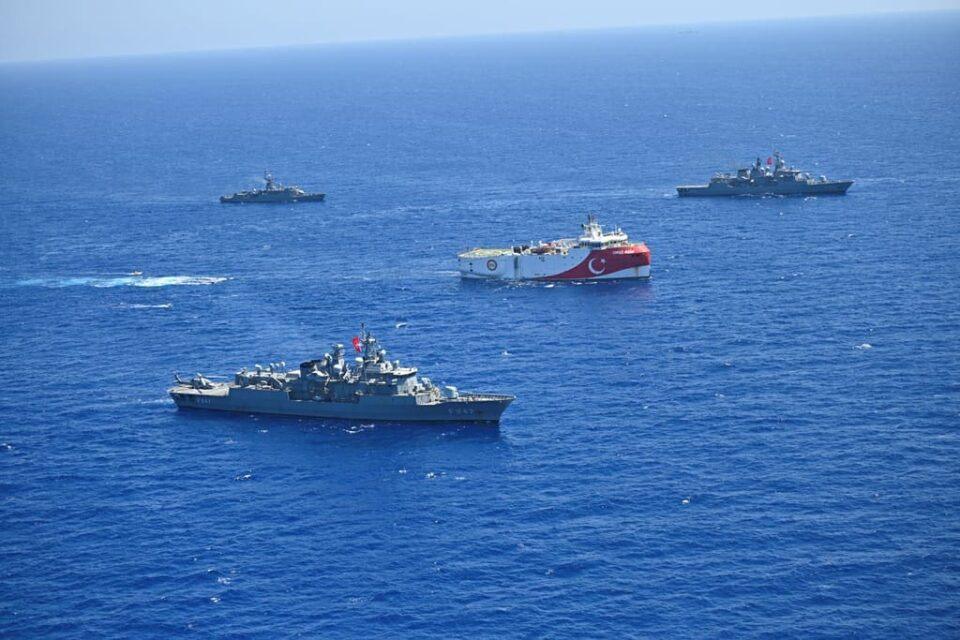Event Summary: Maritime Disputes in the Eastern Mediterranean and International Law

On Wednesday, September 16, 2020, the SETA Foundation at Washington, DC hosted a virtual panel of experts to discuss “Maritime Disputes in the Eastern Mediterranean and International Law.” The discussion featured Cagri Erhan, Rector at Altinbas University, and Yucel Acer, Professor of International Law at Yildirim Beyazit University. The panel was moderated by Kadir Ustun, Executive Director at SETA DC.
At the outset of the discussion, Acer explained that there are technical legal measures behind the current tensions in the eastern Mediterranean. Using maps to show the contested sea, he explained that continental shelves and exclusive economic zones give exclusive rights to states on natural resources. There is room within international law to tell states how to delimitate these zones and continental shelves because geographical situations of states are different from each other. Both according to customary law and the 1982 UN Convention on the Law of the Sea, states should establish their own borders. Acer noted that wherever there are islands located between countries, there will be problems; this issue is not unique to Turkey and Greece. If the two countries are unable to find a solution through dialogue or an international agreement, the dispute can be resolved in the International Court of Arbitration. In terms of Turkey’s maritime agreement with Libya, Acer insisted that the two countries signed the agreement to establish a maritime boundary. It is perfectly legal, but he drew a distinction by saying that countries must accept the agreement for it to be legitimate. Just as Turkey does not accept the agreement between Greece and Egypt, Greece does not accept the agreement between Turkey and Libya.
Erhan made it clear that the main nature of the conflict in the eastern Mediterranean is the existence of islands in the Aegean Sea. Since these islands are close to the Turkish mainland, he called for a way to restrain military and political conflict between Turkey and Greece. Since the 1970s, before the UN Convention on the Law of the Sea, the Greek government adopted behavior that leveraged the Aegean islands to disturb Turkey. This was understandable because at this time, Turkish foreign policy was oriented toward the Cyprus question. But in 1995, the Turkish Parliament issued a declaration saying that if Greece increases its territorial waters in the Aegean Sea more than six miles, Turkey will view this as an act of war. In order to resolve the tensions, both Turkey and Greece participated in exploratory talks from 2000 to 2016 and during this time, the two parties did not come close to a military clash. But now, if Turkey and Greece decide to take the case to the ICJ, the two should agree on the question: is it a territorial waters question, a continental shelf question? Through which law will they solve this? Erhan believes that the Greek government is trying to use this conflict for domestic purposes. During the escalation of the crisis, we see a starting point at the renaming of Hagia Sophia as a mosque and Erhan insists that Greece continues to paint Turkey as an aggressor in the eastern Mediterranean.




















